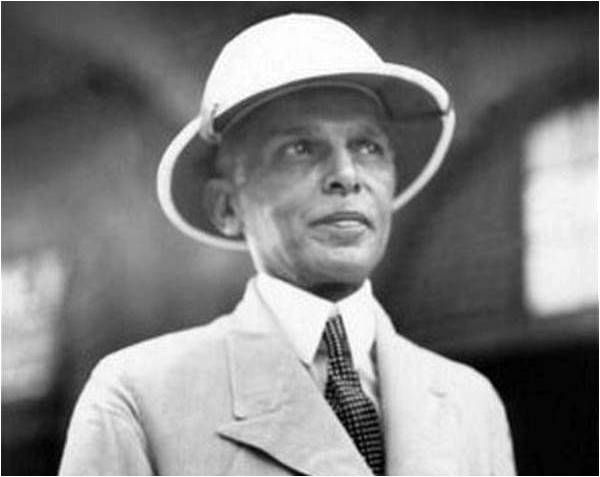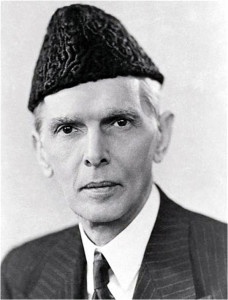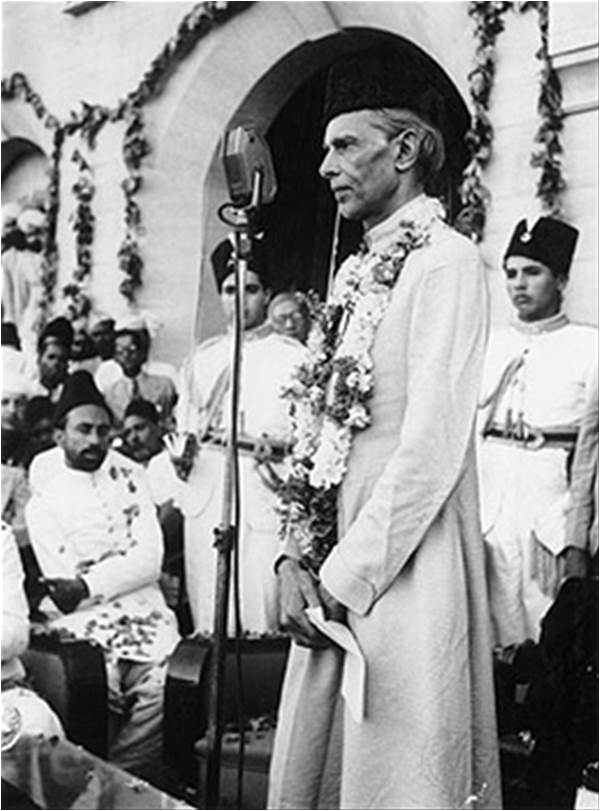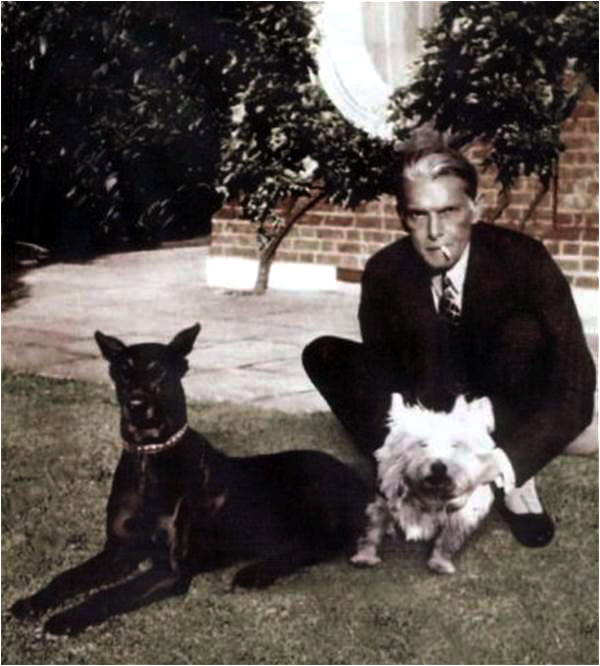

For decades we have been harking back to what the founder of Pakistan said and didn’t say. It all depends where one is coming from. Left, right, centre, centre-left, centre-right. Many of us have an opinion and a handful of quotes of a man who passed away just one year after the creation of this country.
I am one of them. For years I have been going through various speeches and interviews given by Jinnah from 1946 till his unfortunate death in 1948.
I have also read and re-read numerous commentaries lavished on these speeches and interviews authored by scholars, politicians and historians from both sides of the conventional ideological divide.
Alas, I now believe I’ve reached a tentative conclusion: Jinnah, it seems, was everything to everyone – a secular nationalist to the liberals; a finger-wagging shariat-loving mujahid to the religious right; a middle-of-the-road Muslim statesman to the moderates.
When I recently aired this theory of mine at a small gathering of journalists in Karachi, one of them asked whether I was suggesting that Jinnah was basically confused?
Not quite. He was an astute politician. And like all astute politicians, Jinnah was a pragmatist, adjusting his words according to his immediate surroundings.
[quote]A journalist asked me whether I thought Jinnah was confused[/quote]
In liberal, multicultural Karachi he would insist that the state of Pakistan was to be progressive and have nothing to do with religion which, to him, was a personal matter.
In Lahore, the scene of vicious Hindu-Muslim riots, and where some Islamic scholars and mullahs had accused of him of being an infidel in 1946, he would take a moderate view, suggesting that Islam was a progressive religion with a rich cultural and political history that Pakistan ought to emulate.
In Peshawar, where Jinnah’s Muslim League had struggled to remain afloat in the face of the stiff electoral challenge and popularity demonstrated by the left-leaning and secular Pushtun nationalists, Jinnah appealed to the sensibilities of the conservative tribes and clerics opposed to the nationalists, and spoke about the wonders of the Shariah law and how Pakistan was to be run on these laws.
[quote]Jinnah spoke about the wonders of the Shariah law[/quote]
While talking to the Western press he became the liberal Karachiite again, firmly reminding the world that Pakistan was not to be a theological state run by mullahs, but a democratic Muslim-majority state where all citizens, no matter what their religion or ethnicity, would be given equal rights.
No wonder ever since the country’s sudden inception more than 65 years ago, politicians, military dictators and intellectuals from all sides of the ideological spectrum have talked about working towards building ‘Jinnah’s Pakistan.’
For example, whereas the liberals, secularists and even many moderates have continued to present Jinnah as a progressive Muslim and an unbending democrat, the mainstream religious right and the non-Islamic conservative lot have been hailing him as a champion of ‘Islamic democracy’ and a modern interpreter of a state based on shariah laws.

Left-leaning parties like the populist Pakistan People’s Party (PPP), and overtly secular groups such as the Awami National Party (ANP), and the Muttahida Qaumi Movement (MQM), have been vowing to create a Pakistan according to the liberal and progressive vision of Jinnah.
But then religious parties like the fundamentalist Jamat-e-Islami (JI), whose founder was originally opposed to Jinnah, also want a Pakistan based on Jinnah’s wishes of turning the country into a bastion of faith and Shariah.
Close on JI’s heels are populist right-wing parties such as Pakistan Muslim League-Nawaz (PMLN), and Imran Khan’s Pakistan Tehreek-e-Insaf (PTI); both interpreting Jinnah’s supposed vision as something to do with Pakistan being an ‘Islamic Welfare State’ where laws were to be enacted according to the enlightening spirit of Islam.
Then there have been military dictators as well, all of whom claimed to be charting the course laid down by Jinnah.
The secular Ayub Khan dictatorship (1958-69), understood Jinnah as a progressive Muslim statesmen and a benevolent authoritarian. The Ziaul Haq dictatorship (1977-88), claimed Jinnah to be a fearless Islamic figurehead who strove to carve out a separate Islamic state run on the dictates of the Shariah. The Musharraf dictatorship (1999-2008), re-figured Jinnah’s image and made him to be a moderate again whose thinking was close to Musharraf’s policies of ‘enlightened moderation.’
And yet no party, military dictator, historian or intellectual trying to address this question has been able to come up with an answer that has enjoyed widespread acceptance and consensus.

Maybe there is no definite answer to this question. Jinnah died just too soon for one to convincingly judge exactly what sort of a Pakistan he really wanted. Most probably since Pakistan had come into being a lot sooner than even a visionary like him was expecting it to, Jinnah himself wasn’t quite sure.
That’s why he spoke according to the nature of his audience – liberal to liberals, a moderate to moderates, a fan of the Shariah to the religious right.
He was still in the process of testing the waters and formulating a less fragmented idea about Pakistani nationhood when he died. All that emerged after his demise is just angled interpretations, claims and counter-claims about who Jinnah was and what he wanted.
Pakistan has been tumbling across a downward spiral for decades. We have continued to look backwards to find an answer to a predicament that is threatening our future.
There is nothing wrong in studying history and, especially, learning from it. But on most occasions than not, this is not really what we have been doing.
We have not been looking back and contemplating histories that are closest to objectivity. Instead we have been gaining insights from our favourite portions of imagined histories.
We only like highlighting things about our political and religious figureheads that are according to what we like and imagine, while shunning, repressing and even decrying those bits that contradict our political and religious stances.
Today’s existentialist battles are being fought with what our religious figureheads of yore and founders of Pakistan said or didn’t say many years ago. A battle of existence that is threatening our future like never before is lacking a vision or a discourse of what is to be done today and tomorrow.
Even while discussing possible future courses in this respect, we keep slipping backwards, quoting hadiths and Jinnah’s quotes that would help our view of Pakistan dominate over those of our ideological counterparts’.
We seem stuck in our own imagined views of history. But then what about the future? The dreadful tomorrow?
With so many Jinnahs of Pakistan floating around, we will have to create a Jinnah of the future. By this I do not mean yet another military man or a populist politician with a gigantic messianic complex, but a well thought-out, debated and consensual vision of a Pakistan based on today’s realities.
Jinnah of the future should be accepted as a pragmatist who today would have addressed issues like extremist violence and religious fundamentalism not as an ideologue, but as a pragmatic statesman who would know that such issues were retarding the country’s economic, cultural and political evolution, and need to be decisively dealt with.
He would have understood that the rapid proliferation of conservative ideas in Pakistan in the last three decades have made the bulk of the society become reactive towards things like secularism and liberalism. But Jinnah would also be conscious of the fact that this brand of conservatism is indirectly creating a platform for regressive forces to dominate the country’s affairs. Thus the pragmatic Jinnah would not sit on the fence like most of today’s ‘moderates,’ and call it a middle-ground.
He would assertively create a real middle-ground between religious conservatism and liberalism, for which he would not hesitate to alter, modify and reform a number of laws present in the Constitution whom even the most liberal and moderate political leaders have been afraid to touch.
Jinnah would not do this out of any ideological compulsion. He would do so because of the future survival of Pakistan - a country torn and plagued by religious and sectarian strife that is cornering its economics and society to come to a standstill.
The pragmatic, future Jinnah will not be repulsed by ethnicity. He will understand that the ethnic identities of Pakistan’s various ethnicities have survived the continuous (and fissure-inducing) onslaught of the Pakistani state’s monolithic idea of Pakistani nationhood.
The pragmatic Jinnah would try to find unity in diversity, and draw from each ethnic culture, as well as Muslim sect and sub-sect and minority religious groups in the country, the best they have to offer to Pakistan in developing its economy, its arts, its sports and its identity.
Jinnah has to be stopped being studied and projected as an ideologue. He wasn’t one. He was a pragmatist, and pragmatism demands we begin to see him in this light and do today what any enlightened and astute pragmatist would.

